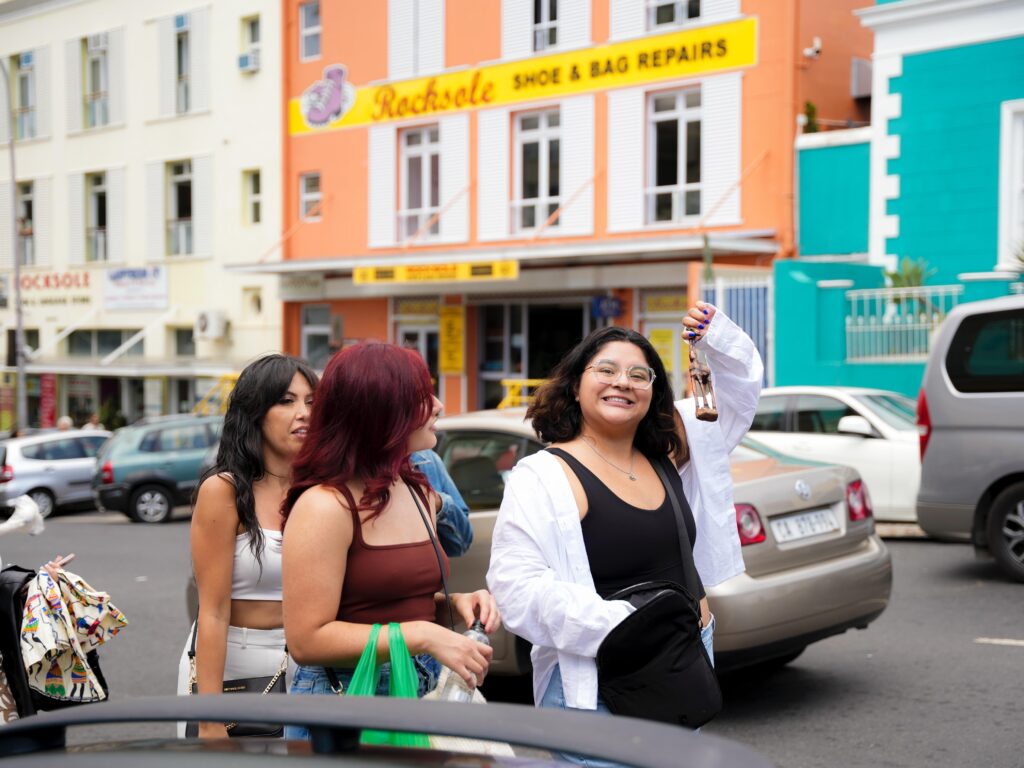Curiocity is using its Green Point property in Cape Town to anchor a national strategy focused on hybrid hotel accommodation and curated local experiences. The format combines apartment-style units with shared spaces and structured programming to attract both business and leisure travellers.
Founded in Johannesburg’s Maboneng precinct in 2013 by Bheki Dube, Curiocity now operates three properties in Johannesburg, Green Point and Kloof Street in Cape Town, with a combined capacity of 350 beds and a team of 43 staff. The Green Point site, run as a joint venture with a property developer, is positioned as a central example of how the brand integrates accommodation, culture and community engagement.
“The hybrid model has grown with me,” Dube said. “It’s about creating spaces where different kinds of travellers can stay, meet and learn from each other.”
Evolution of a hybrid model
When Dube opened the first Curiocity in 2013, it followed a design-led backpacker model. Over the past decade, it has shifted toward an apartment-hotel format that maintains the social environment of hostels while offering private, self-contained units. The aim is to accommodate a range of guests from senior executives to first-time travellers and create opportunities for interaction between them.
“In the early days, my peers were backpackers, so that’s the space we created,” Dube said. “Now, my personal and professional network has grown, and so has our model. The hybridity is about offering something that meets the needs of today’s travellers without losing the sense of community.”
Green Point as a case study
The Green Point property is located within walking distance of Cape Town Stadium, the V&A Waterfront and the Atlantic Seaboard. It offers a mix of private apartments, shared spaces and programmed activities. The design incorporates references to local architecture and art, with headboards shaped after Dutch colonial arches but covered in African fabrics, literature from Woodstock’s Chimurenga project and works by artists including Atang Chikare and Anima Donzela.
“These are not just decorative choices,” Dube said. “Every element has a story. Guests are taking part in what’s happening here.”
Programming includes Cape Peninsula tours, rooftop performances, barbecue gatherings and art workshops. Visiting artists can exchange original work for accommodation, creating a rotating collection of locally relevant pieces. Multi-day packages are being developed to extend average stays beyond three nights, combining cultural activities, outdoor excursions and local dining with visits to Robben Island, Table Mountain and the Winelands.
“By curating experiences, we’re creating reasons for guests to stay longer and connect more deeply with the city,” Dube said.
Winter as an opportunity
For years, South Africa’s winter season was treated as a low-demand period. Recent data from South African Tourism shows domestic travel during winter months rose by 18% year-on-year, with urban cultural experiences just behind nature escapes in popularity among younger travellers. Lower rates during this period are a significant driver, attracting both domestic visitors and long-haul markets.
“We never saw winter as a slowdown, we saw it as an opportunity to rethink how people experience the city,” Dube said. “We have seen great opportunity in the American market, for example, the EDventure groups we just hosted with Jocelyn. For them, winter here means more value for money and more time to immerse themselves.”
Curiocity adjusts its strategy in winter to focus on domestic travellers, remote workers and special-interest groups. In addition to international groups, the brand runs programmes where travellers combine leisure with local engagement, such as volunteer work in schools.
“Winter in Cape Town is a good time to attract locals who might be priced out in summer,” Dube said. “We also look for ways to create trips that mix leisure and contribution.”
Operations and partnerships
Curiocity lists its properties on platforms such as Booking.com and Airbnb but promotes direct bookings to reduce commission costs. It works with referrers and B2B operators to secure group bookings, which provide more predictable revenue. Partnerships with cultural institutions and activity providers, including Robben Island and Table Mountain, form part of its plan to integrate accommodation with key attractions.
The company employs a young team, many of whom have advanced from internships to senior roles. Managing seasonal demand remains a challenge. “Low season means working twice as hard because your expenses don’t drop,” Dube said. “You have to keep the team motivated and keep finding ways to bring in business.”
Looking ahead
Dube views Green Point as a blueprint for expansion into other cities. The hybrid model’s flexibility allows Curiocity to adapt to changing traveller needs while maintaining cultural relevance in each location.
“Our goal is to make every stay more than a bed,” he said. “It should be a story the guest takes with them. If we can replicate that across more locations, while keeping it locally relevant, then we’re building something sustainable.”








